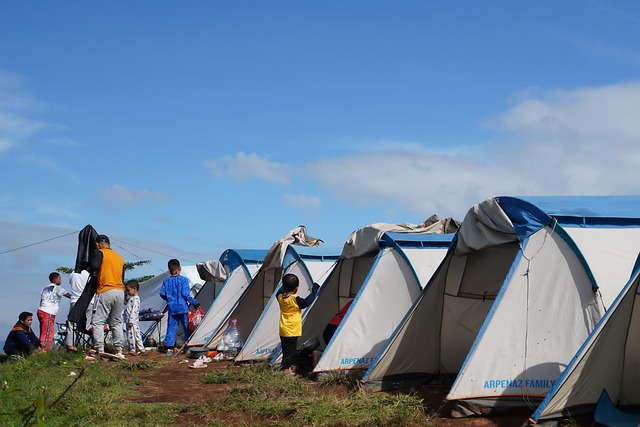Rocky Creek Youth Camp in Missouri, with a history of abuse allegations, has reformed under new leadership to prioritize safety and trust. Legal frameworks in Missouri mandate reporting, care standards, background checks, training, and penalties for camp abuse. The camp employs strict policies, staff training, reporting protocols, audits, and inspections to ensure accountability and maintain high safety standards, signaling zero tolerance for abuse.
In the wake of recent revelations, the legacy of abuse at Missouri’s Rocky Creek Youth Camp has come under intense scrutiny. This article delves into the historical context of Rocky Creek, exploring the legal frameworks designed to protect youth and hold camps and their staff accountable. We examine strategies for addressing past abuses and preventing future tragedies, shedding light on a crucial aspect of juvenile justice and camp safety.
- Understanding Rocky Creek Youth Camp's Historical Context
- Legal Frameworks for Addressing Camp Abuse
- Strategies for Holding Camps and Staff Accountable
Understanding Rocky Creek Youth Camp's Historical Context

Rocky Creek Youth Camp, nestled in the heart of Missouri, has a history that stretches back decades. Established with the intention of providing a safe haven for at-risk youth, its early years were marked by positive contributions to the local community. However, as time passed, allegations of abuse emerged, casting a shadow over its reputation. This historical context is crucial in understanding the ongoing efforts to address and rectify these past transgressions.
The camp’s operations have been under scrutiny since reports of physical and emotional mistreatment surfaced. These revelations prompted a comprehensive review, leading to significant changes in leadership and policy. Today, with a renewed focus on safety and well-being, Rocky Creek Youth Camp is actively working to regain the trust of its stakeholders, including former residents who may still bear the scars of their experiences.
Legal Frameworks for Addressing Camp Abuse

In addressing camp abuse, particularly at notorious facilities like Rocky Creek Youth Camp, legal frameworks play a pivotal role in ensuring justice and accountability. Missouri, like many states, has enacted laws to protect minors and establish protocols for handling allegations of abuse within youth camps. These include stringent reporting requirements, mandating that camp staff report any suspected instances of child abuse or neglect immediately to local law enforcement or appropriate child protective services.
Moreover, legal frameworks often outline specific standards of care that camps must adhere to, including implementing safety measures, conducting thorough background checks on employees, and providing comprehensive training on recognizing and responding to potential abuse situations. The consequences for non-compliance can range from fines to license revocation, underscoring the gravity of maintaining a safe environment for vulnerable youth, such as those in the care of Rocky Creek Youth Camp.
Strategies for Holding Camps and Staff Accountable

At Missouri’s Rocky Creek Youth Camp, ensuring accountability for abuse is a multi-faceted approach. One key strategy involves stringent policy implementation and regular training for all staff members to recognize and report any form of mistreatment. This includes mandatory reporting protocols, with clear guidelines on what constitutes child abuse, and the consequences for non-compliance.
Additionally, independent audits and inspections can help maintain transparency and accountability. By inviting external experts to assess the camp’s practices, leadership demonstrates a commitment to upholding high standards of safety and care. These measures not only hold the camp and its staff responsible but also send a strong message that any abuse will be met with swift action and legal consequences.
The issue of abuse at Missouri youth camps, particularly within institutions like Rocky Creek Youth Camp, demands a multifaceted approach. By understanding the historical context, utilizing relevant legal frameworks, and implementing robust strategies for accountability, we can foster a culture of safety and justice. It is imperative that both camp administrators and legal professionals work collaboratively to ensure that past injustices are addressed, and that future protections are enhanced, ultimately safeguarding vulnerable youth across Missouri and beyond.
